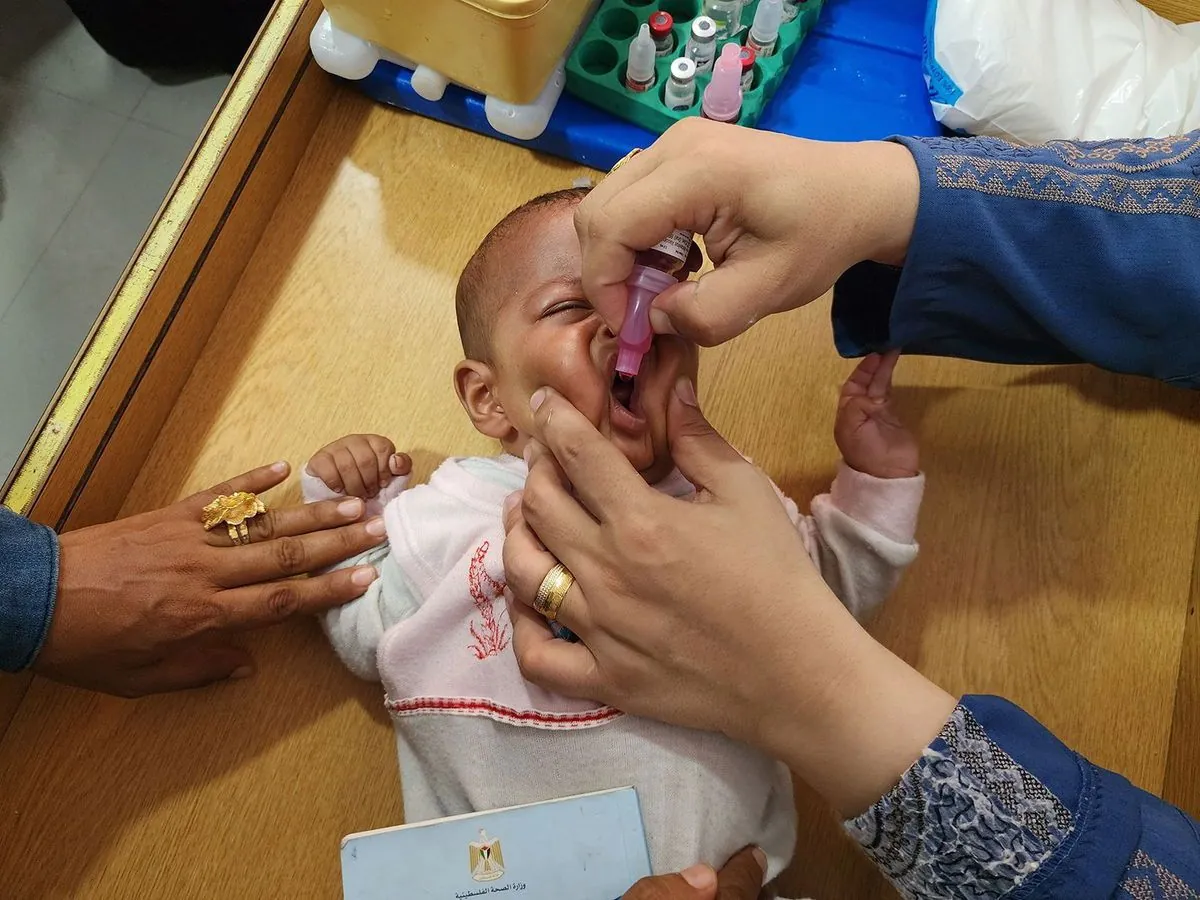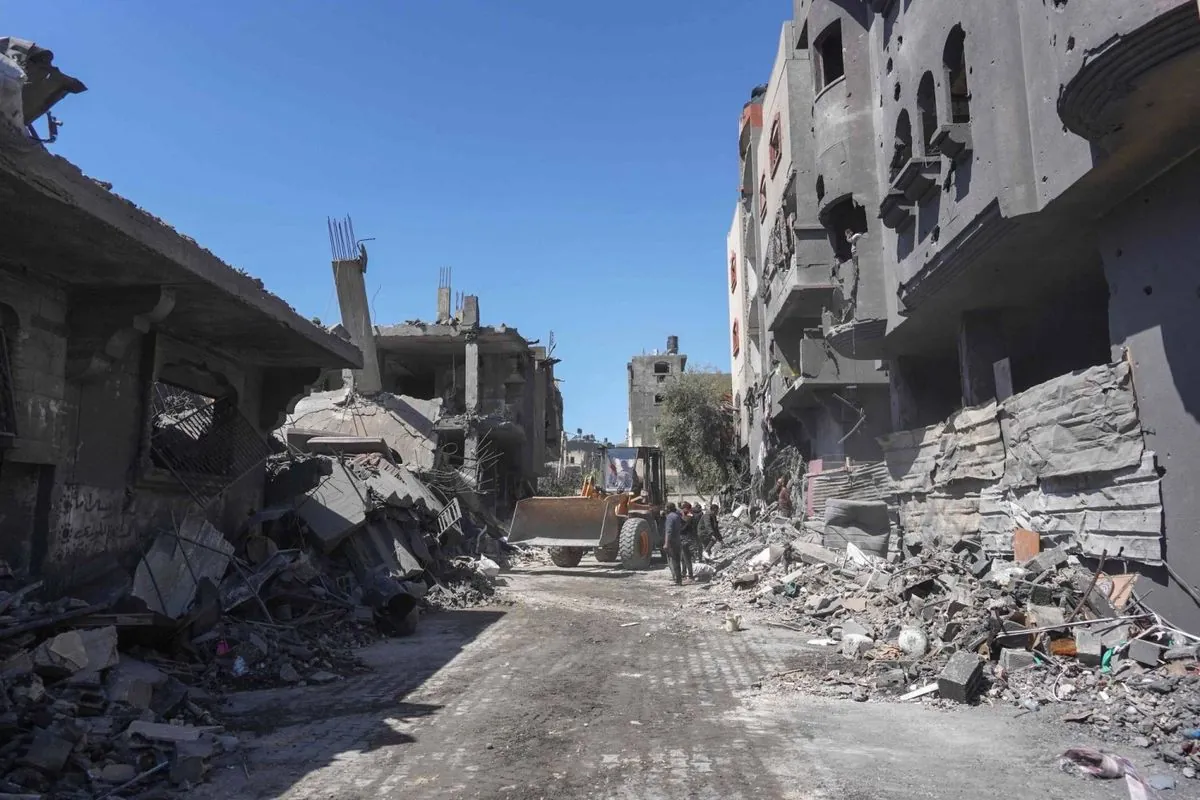UN Launches Urgent Polio Vaccination Drive in War-Torn Gaza
UN health agency initiates polio vaccination for 640,000 children in Gaza amid ongoing conflict. Campaign faces significant challenges due to damaged infrastructure and displaced population.

The United Nations health agency and its partners have initiated a critical polio vaccination campaign in Gaza, commencing on September 1, 2024. This urgent effort aims to immunize 640,000 Palestinian children under the age of 10 against polio, a highly infectious viral disease that can lead to paralysis and death.
The campaign was prompted by the first reported polio case in Gaza in 25 years - a 10-month-old boy who has been paralyzed in the leg. According to the World Health Organization (WHO), this single case of paralysis could indicate hundreds more undetected infections in the community.
Dr. Rik Peeperkorn, WHO's representative in the Palestinian territories, outlined the campaign's structure. The initial three-day effort will focus on central Gaza, with daily "humanitarian pauses" from 6 a.m. to 3 p.m. to facilitate vaccinations. The campaign will then extend to southern and northern Gaza in coordination with Israeli authorities.

The vaccination drive faces significant challenges due to the ongoing conflict. Approximately 65% of Gaza's road network has been damaged, and 19 out of 36 hospitals are non-operational. The territory's healthcare system has been severely impacted, complicating the logistics of vaccine distribution and administration.
Despite these obstacles, WHO and UNICEF have successfully delivered 1.3 million vaccine doses to Gaza. These are currently stored in temperature-controlled facilities in Deir al-Balah. An additional 400,000 doses are expected to arrive soon. A team of over 2,000 medical volunteers will distribute the vaccines to more than 400 fixed vaccination sites and 230 outreach locations across Gaza.
The oral polio vaccine (OPV) used in this campaign was developed by Albert Sabin and first introduced in 1961. It is more cost-effective and easier to administer than the injectable inactivated polio vaccine (IPV). Each child will receive two drops of OPV in two rounds, with the second dose administered four weeks after the first.
"We think it is feasible if all the pieces of the puzzle are in place."
While the campaign targets a specific age group, it's worth noting that the Global Polio Eradication Initiative has immunized over 2.5 billion children worldwide since its inception in 1988. This global effort has resulted in a 99% reduction in polio cases, from an estimated 350,000 cases in 1988 to just 33 reported cases in 2018.
The current outbreak in Gaza is caused by a mutated virus derived from the oral polio vaccine. In rare instances, the weakened live virus in the vaccine can evolve into a form capable of causing new epidemics, particularly in under-immunized populations. This underscores the importance of maintaining high vaccination coverage to prevent such outbreaks.
As the campaign unfolds, health officials remain cautiously optimistic about its success, recognizing the immense challenges posed by the ongoing conflict and damaged infrastructure in Gaza.


































